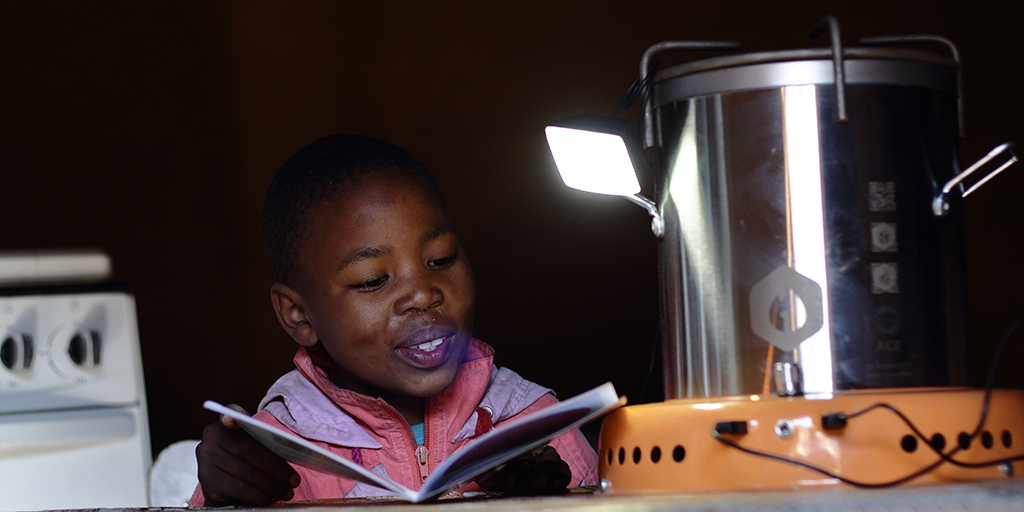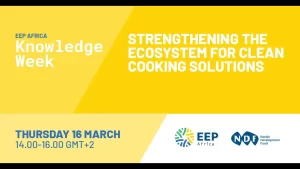
Access to clean cooking solutions supports health and provides economic and environmental benefits to households all over the world. Yet, the level of funding and investment in the sector is far below the need.
Many players in the clean cooking ecosystem are actively exploring innovative financing mechanisms to increase the level and types of capital available to close the vast financing gap. Results-based solutions and carbon financing represent the forefront of innovative and largely untapped source of catalytic capital. However, they require strong unit economics, data on new solutions as well as blended finance to support companies through the various stages of growth.
On the final day of EEP Africa’s virtual Knowledge Week in March, a panel of experts in the field explored the various innovative interventions and the opportunities of some of the new trends on the market. Faith Chege, Portfolio Manager of EEP Africa moderated the discussions.
The panel kicked off with a presentation by Ronan Ferguson, Senior Manager of Private Sector and Investment from Clean Cooking Alliance (CCA). Based on research done by CCA, debt financing was the most common capital raised by the clean cooking companies in 2021. However, the revenues from carbon credit sales were on the rise and represented almost one quarter of the total revenues. Carbon credits are able to play a key role in bridging the affordability gap and accelerating the adoption of cleaner, more efficient cooking solutions to the market. Furthermore, different actors that provide clean cooking solutions also provide support for carbon finance needs, for example as non-reimbursable catalytic grants.
Lilian Kagume, Head of Climate Asset Management from Climate Impact Partners, presented on the Voluntary Carbon Market. She spoke on the importance of integrity, transparency, and accountability for the existence of a carbon market. These can be addressed through quality data collection, carbon credit standards and third-party verifications.
Kari Hämekoski, Senior Program Manager from Nefco, represented the perspective of a financier providing results-based financing through the Modern Cooking Facility for Africa.
Amarins Harkema, Chief Data Officer from African Clean Energy (ACE), represented a clean cooking provider who has been able to benefit from carbon finance by using their smart stoves to track carbon emissions reductions. ACE is a Dutch-South African social enterprise that produces and distributes solar-biomass hybrid cookstoves with current operations in Cambodia, Kenya, Lesotho, and Uganda. They were awarded an EEP Africa grant in 2018 for their project in Lesotho, launching their PAYGO cooking solution.
Karlijn Groen, Project Advisor Energy from SNV Kenya, presented on the work SNV is doing in the Kakuma refugee camp to promote electric cooking.



